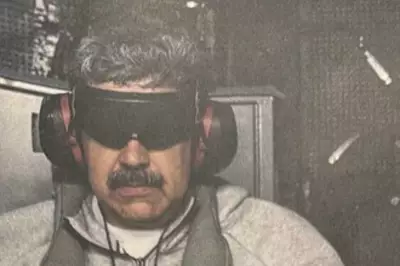
Constitutional Clash in Texas Classrooms
A controversial new law in Texas has thrust public schools into the centre of a national debate over the separation of church and state. The legislation, which came into effect in September, mandates that every public school classroom must display a poster listing the Ten Commandments, provided the displays are donated.
The rollout has been met with immediate legal challenges and profound personal dilemmas for educators across the state. Federal courts have already intervened, issuing orders to more than two dozen of Texas's nearly 1,200 school districts, prohibiting them from hanging the posters. A significant ruling on Tuesday saw a judge declare that the mandate violates the First Amendment's Establishment Clause, which forbids government establishment of religion.
Educators Forced to Choose
For some teachers, the law has presented an impossible choice. High school theatre teacher Gigi Cervantes felt she could not comply with what she saw as "forcing or imposing religious doctrine onto my students." Consequently, she made the difficult decision to resign from her beloved position at the Fort Worth Academy of Fine Arts.
Her sentiment is echoed by others in the profession. Rachel Preston, a teacher in Austin where a court order has temporarily blocked the displays, expressed anxiety about the potential impact on students. "We’re worried specifically about students who don’t identify as Christian feeling unease," she said, highlighting the delicate position in which educators find themselves.
The issue is not confined to Texas; courts have also ruled against similar laws in Arkansas and Louisiana, and the matter is widely expected to be appealed all the way to the U.S. Supreme Court.
Implementation and Resistance Across Districts
Despite the legal uncertainty, many Texas schools are proceeding with implementation. The law specifies that donated posters must be displayed "in a conspicuous place" with writing visible from anywhere in the classroom. The required size is a specific 16 inches wide by 20 inches tall.
Some districts have taken proactive, and costly, measures. In suburban Dallas, Frisco school officials spent approximately $1,800 to print nearly 5,000 posters, even though the law only requires them to hang donated displays. Conversely, other districts are resisting. The Galveston Independent School District board voted to postpone posting the commandments until the courts rule on constitutionality, a decision that has made them the target of a state lawsuit.
Elizabeth Beeton, a member of the Galveston school board, succinctly captured the predicament: "Districts are in between a rock and a hard place." This week, Texas Attorney General Ken Paxton announced lawsuits against two more districts, including the Leander Independent School District, which claims it is already displaying donated posters.
Some schools are attempting to provide context. South of Austin, the Hays Consolidated Independent School District has chosen to display copies of the U.S. Constitution’s Bill of Rights—which enshrines the First Amendment—alongside the state-required Ten Commandments.
A Divided Response from Community and Students
The new mandate has animated communities and school boards alike. Proponents, including Republicans such as former President Donald Trump, see the commandments as a vital moral guide. Lorne Liechty, an attorney and county commissioner who helped fundraise for posters in the Rockwall district, stated, "These are just really good guides for human behaviour." Parent Adriana Bonilla agrees, believing the posters "assists with moral foundations" for her kindergarten-aged son.
However, within schools, the reaction is mixed. Madison Creed, a 16-year-old student in Carthage, said the posters became the "buzz of the school." She noted, "I know talking to a lot of my peers... that a lot of us don’t agree with it but there is the other portion of the school that does." The debate was intensified when her high school band director, Johnnie Cotton, resigned over the law, writing that he believed "very strongly that politics and religion have no place in the public schools."
Even among supporters of the display, like parent Tiffany Meadows, there are concerns. "These are public schools, these aren’t Christian schools," she acknowledged, worrying about students of other faiths.
As teachers seek guidance from organisations like the Texas Classroom Teachers Association on how to handle student questions and the consequences of non-compliance, the state remains deeply divided. For resigning teacher Gigi Cervantes, the principle was clear. "I don’t want to be any part of that," she said, referring to a "climate of fear" where people fail to stand up for their beliefs.





